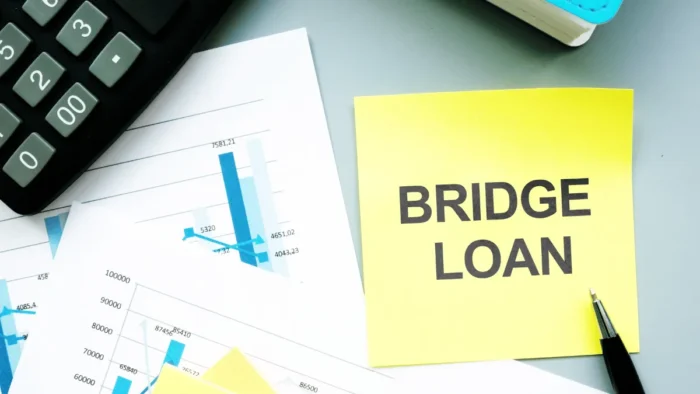Finding adequate financing is one of your biggest challenges as a business owner. And it can determine whether your ideas flourish or fade away.
For instance, securing venture capital funding is daunting for startups, with only 0.5% successfully raising such funds. Unsecured business loans might be the solution you’ve been seeking. But like anything, they come with their pros and cons.
Unlike their secured counterparts, unsecured business loans don’t need you to put up collateral. That’s a boon if you lack assets. However, they’re not all rainbows and sunshine. There are downsides too.
In this article, you’ll dive deep into three benefits and two drawbacks of these loans, equipping you with the knowledge you need to make an informed decision. So dive in.
Pros
Discover the advantages of unsecured business loans and how they can empower entrepreneurs. From the freedom of collateral-free financing to quick access to funds, explore the benefits that can help your business thrive.
1. No Collateral is Required
An unsecured business loan doesn’t require collateral. You’re free from the fear of losing your home, car, or other valuable assets.
This is particularly useful if you’re starting out. You might not have many assets to put up as collateral. Unsecured loans free you from this hurdle. They allow you to secure financing without putting your property on the line.
2. Quick Funding Process
Unsecured business loans offer a fast, streamlined application process. This means quicker access to funds, typically one to seven business days for approval.
Imagine an unforeseen opportunity arises, and you need to jump on it quickly but lack the funds. With the speed of unsecured loans, you’re not left in the lurch. You get the funds fast, seizing the opportunity without missing a beat.
Unsecured loans provide a quick lifeline if unexpected expenses pop up when equipment breaks down, or a deal falls through. You address the issue swiftly, keeping your business afloat.
3. Flexibility in Usage
Another upside of unsecured business loans is that they offer flexibility in usage. The money you borrow can be allocated according to your business needs.
Perhaps you want to hire more staff or invest in new software. Maybe your marketing budget needs a boost. With an unsecured loan, the choice is yours. You’re free to distribute the funds where they’re most needed.
In contrast, certain secured loans restrict fund usage. They may dictate that funds be spent on specific purposes. Unsecured loans don’t confine you with such limitations.

Cons
While unsecured business loans offer advantages, weighing the potential downsides is crucial. Explore the drawbacks, such as higher interest rates and the impact on your credit score, helping you make informed decisions for your business’s financial well-being.
1. Higher Interest Rates
One significant drawback of unsecured business loans is the typically higher interest rates associated with these loans. Compared to secured loans, unsecured loans tend to have higher interest rates, normally ranging from 5% to over 80%, which can impact a business’s finances in the long run.
The higher interest rates mean you’ll end up paying more in interest over the loan term. This can increase the overall cost of borrowing and affect your cash flow. It’s crucial to carefully assess whether the benefits of the loan outweigh the additional expenses caused by the higher interest rates.
Before taking out an unsecured loan, you must analyze your business’s financial situation, projected revenue, and ability to comfortably make loan payments. Comparing interest rates from different lenders and exploring alternative funding options can also help you make an informed decision.
2. Impact On Credit Score
Another important consideration when taking out an unsecured business loan is the potential impact on your credit score. Defaulting on an unsecured loan can severely affect your creditworthiness and future loan applications.
When you default on a loan, it signals to lenders that you may be a risky borrower. This can result in a significant drop in your credit score. A lower credit score makes it more challenging to obtain favorable loan terms and may limit your access to financing options in the future.
Furthermore, a negative credit history can domino effect other aspects of your business. It can affect your ability to secure other forms of credit, such as business credit cards or lines of credit. It may also influence relationships with suppliers, who may hesitate to extend favorable payment terms or credit agreements.
Conclusion
Unsecured business loans offer a myriad of benefits, as seen above. However, it’s essential to consider the downsides too.
Before pursuing an unsecured loan, carefully evaluate your business’s financial position and determine if the benefits outweigh the drawbacks. Consider the urgency of your funding needs and the potential long-term costs of higher interest rates. Additionally, assess your ability to make timely loan repayments to protect your credit score.
To mitigate risks, explore alternative funding options, compare interest rates, and develop a solid repayment plan. Financial planning and thorough research are essential before committing to any loan, ensuring that it aligns with your business goals and supports sustainable growth. Remember, every business is unique, so what works for one may not work for another. By weighing the pros and cons, you can make an informed decision that propels your business forward while minimizing financial risks.





